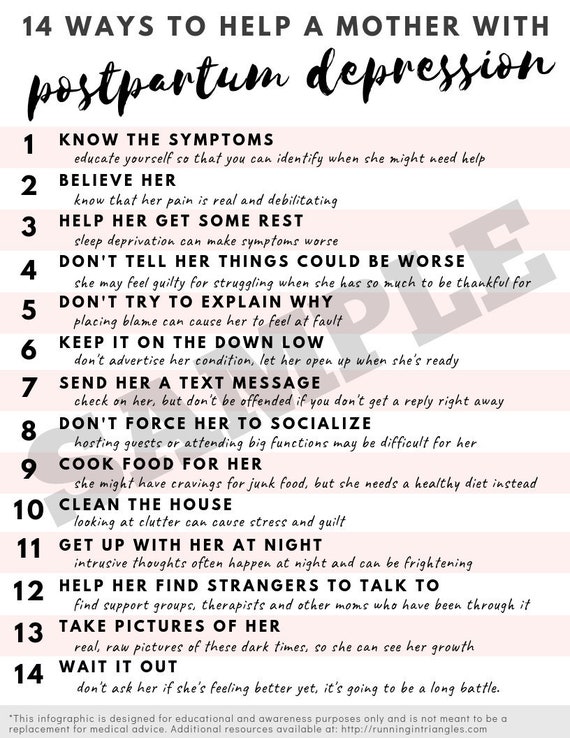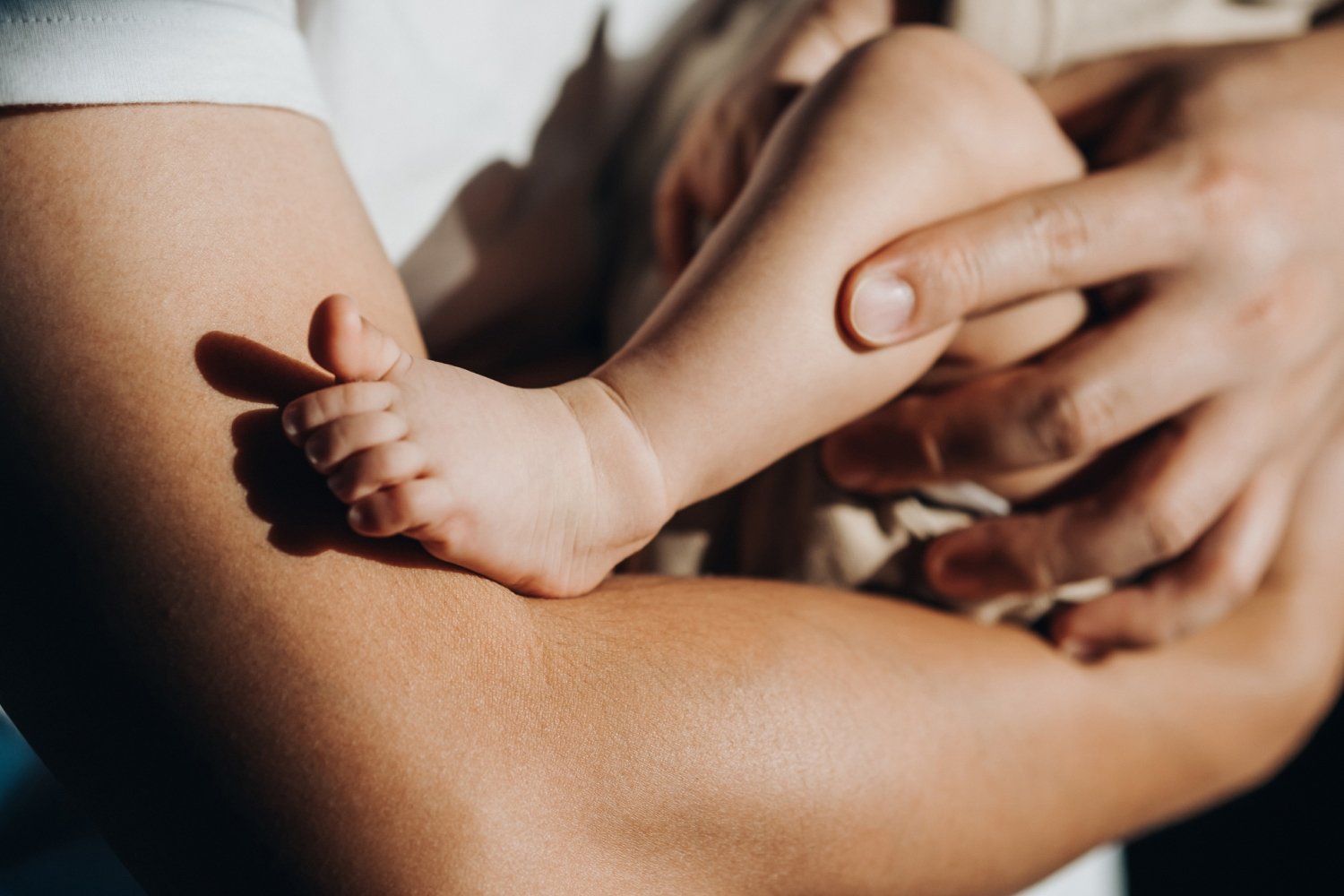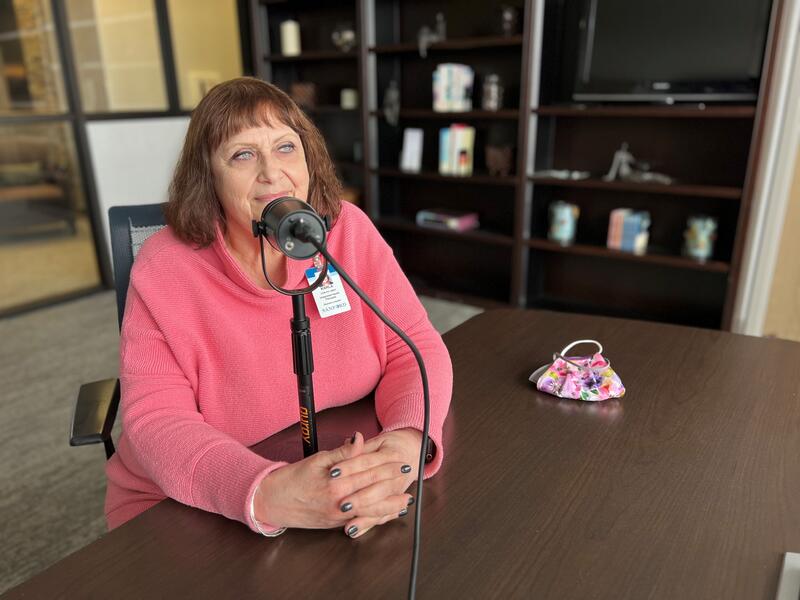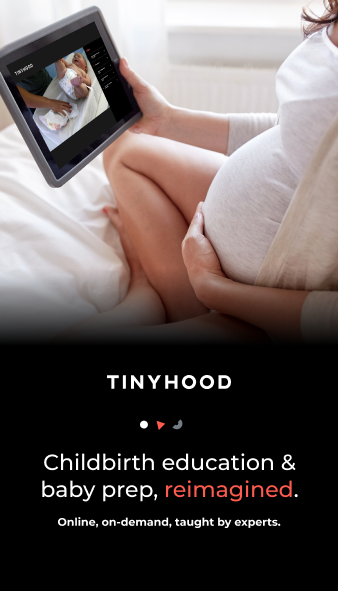8 Ways to Protect Your Mental Health in Your Postpartum Time - Better Beginnings

In the postpartum world, there are two main categories of mental health that professionals like postpartum doulas are trained to recognize and discuss with clients. The first category is called the "Baby Blues" and 4 out of 5 new moms, or 80%, experience this stage. The Baby Blues usually go away on their own, and most parents don't need any formal treatment. Parents with the Baby Blues may feel sad and cry a lot, feel moody or cranky, have trouble sleeping, eating or making decisions, feel overwhelmed, or feel that they can’t do a good job of taking care of their baby. The Baby Blues can start 2 to 3 days after you have your baby and can last up to 2 weeks.

6 Ways To Support A Friend During The Postpartum Period – Forbes

Postpartum Depression: A Guide to Symptoms & Treatment
This is an 8.5 x 11 PDF file of this infographic, designed to help caregivers of new mothers who might be suffering from postpartum depression.,

14 Ways to Help a Mother with Postpartum Depression Infographic 8.5 x 11

5 Mental Health Risks Many Lactating Parents Face

Guide to Taking Care of Mental Health After Having Baby

Tips for Easing Your Postpartum Recovery

10 self-care tips for postpartum depression — Calm Blog

Protecting our mental health postpartum - Sanford Health News

Advantia Health Partners With Tinyhood - Advantia Health

Postpartum Period: The First 6 Weeks After Childbirth

7 Ways to Prep for Parenthood That Protect Your Mental Health - AbleTo

Importance of Mental Health - Capital Women's Care

Tips to Maintain Your Mental Health After Your Baby is Born

How Pregnancy Can Affect Your Mental Health